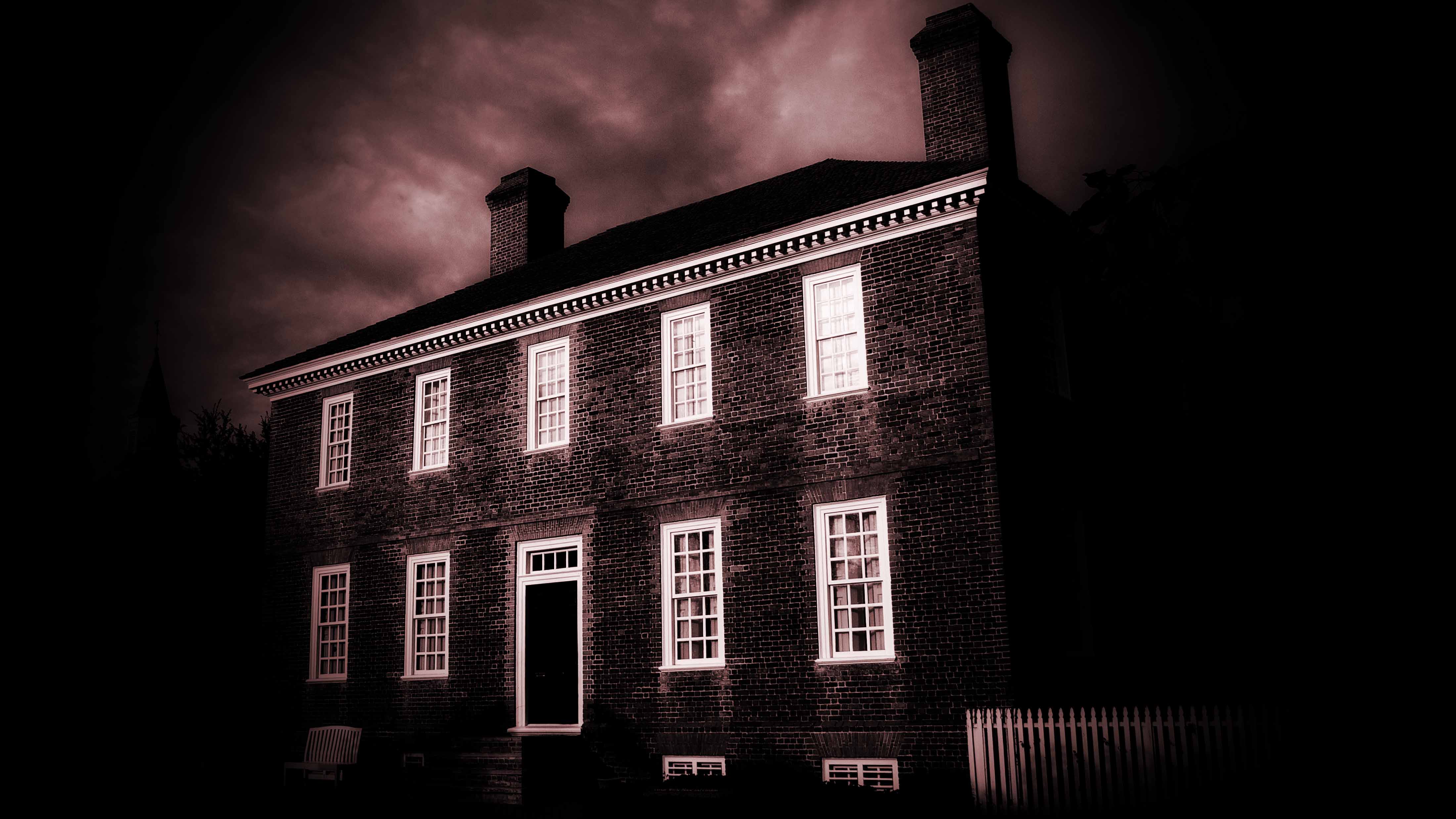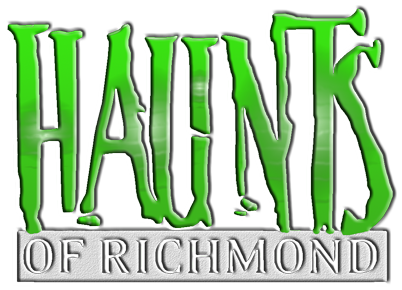George Wythe - A Shocking Murder and an Unhappy Haunting
March 25th, 2024

One of Virginia’s most prominent founding fathers, George Wythe’s legacy in life is only overshadowed by the manner in which he passed.
Wythe was the first Virginia signer of The Declaration of Independence, the first law professor in the United States as the Chair of Law and Police at the College of William and Mary, he was a friend of George Washington, an anti-slavery advocate, and a close friend and mentor to Thomas Jefferson. His house still stands in Colonial Williamsburg, the city where he served as mayor in 1768 and 1769. Unsurprisingly, it’s known as one of the most haunted houses in Colonial Williamsburg. More on that in a moment…
George Wythe had moved from Williamsburg to his Richmond home in 1791, where he continued his service as Judge for Virginia after the death of his wife Elizabeth. George died at the age of 80, on the 8th of June 1806, in his Richmond home. The cause of death? Murder. A crime that would shock the community to its core.
Who would do such a thing to this beloved paragon of the community? George’s 18-year-old grand-nephew, George Wythe Sweeney. Sweeney was one of the two beneficiaries to Wythe’s fortune, along with Michael Brown, the 16-year-old servant and son of Lydia Broadnax, Wythe’s longtime cook. George Wythe had no living children of his own, but he agreed to take in his troubled grand-nephew to try and set him on a respectable path. A decision that he would come to regret. Although George Wythe treated Sweeney very well, Sweeney proceeded to commit a series of crimes, including forging George Wythe’s name on checks and stealing George Wythe’s possessions from his home. Sweeney had also managed to amass a large gambling debt, but if George Wythe would just die, Sweeney would inherit a small fortune, allowing him to clear his debts and still have money to spare.
One morning, it is believed that Sweeney poured a substance, likely arsenic, into Wythe’s coffee. Lydia observed this but did not realize the lethal intent of Sweeney’s action at the time. Wythe, Lydia, and Michael all became violently ill shortly after taking their coffee. Only Sweeney was spared the agony. Wythe immediately suspected that they were poisoned.
Michael Brown was the first to die, making Sweeney the sole heir to the Wythe fortune. George Wythe’s death was long and painful over the course of two weeks. A time frame that was apparently too long for Sweeney. While his great-uncle was on his deathbed, Sweeney attempted to cash a check against Wythe’s account. Suspicion against Sweeney was immediate, and he was arrested for forgery. A critically ill Wythe removed Sweeney from his will and urged further investigation. During a search of Sweeney’s room, they uncovered arsenic, and Lydia provided testimony that she had seen Sweeney reading Wythe’s will before the poisoning.
After Wythe’s death, the trial of George Sweeney became a “trial of the century”. However, Sweeney was acquitted of all charges against him, including forgery charges and the murders of Michael Brown and George Wythe. The autopsies of Wythe and Brown were botched, and Lydia, the only credible witness, was barred from testifying because she was not white. Though Sweeney evaded justice in Richmond, he quickly left town under the advisement of his lawyers. He dropped off the historic record after being arrested again, this time in Tennessee for horse theft.
George Wythe’s funeral closed the City of Richmond for the day, as most of the populus turned out to pay their respects. He is buried in the graveyard of St. John’s Church, where his marker can still be easily found, close to what is now the main entrance of the church.
As noted before, George Wythe’s house still stands in Williamsburg. It was built in 1753 and given as a gift to George Wythe from his father-in-law. The house also served as headquarters to General Washington and the French Lafayette before the Battle of Yorktown. It is also one of the most haunted locations in the historic city.
The haunting of the Wythe House involves a one-time resident, Ann Skipwith. Ann and her husband, Sir Peyton Skipwith, were friends of the Wythes. During the late 1770s, the Skipwiths often enjoyed extended visits with the Wythes until 1779 when Lady Ann Skipwith died. However, her death was not peaceful, nor did it go unnoticed. Many rumors spiraled as a result of Ann’s death, and it is still unclear which version (if any) is true. Of the multiple stories, the one that is most favored by many is as follows:
The tragic tale claims that Ann took her own life in a bedroom at Wythe House after an embarrassing public argument. One night at an elegant ball down the street at the Governor’s Palace, the couple had a heated argument, in which Ann Skipwith accused her husband of having an affair with her sister. She ran back to Wythe’s home in hysterics, losing a shoe along the way. Once in the home, she stormed up the stairs and committed suicide in the room that she was sharing there with her unfaithful husband.
After Ann’s death, Sir Skipwith married her sister, and many believe Ann’s jealous soul remains in the house to this day. You may hear the sound of a woman running up the stairs, the sharp clack of a heel followed by the sound of a dull thud as from a bare foot. You may see the ghost of Ann herself lingering near the stairs in her ballgown from that night, or in the bedroom where she spent her final moments. The closet in the room where she stayed occasionally swings open, and at times the room is filled with a faint lavender scent. She has been seen to exit the closet in her cream-¬colored satin dress and single red shoe, blankly gazing into the mirror before vanishing without acknowledging any visitors.
There is yet another spirit that haunts the Wythe House, and it may be George Wythe himself. Some attribute moving shutters seen from the outside, the sounds of moving furniture, and the apparition of a colonial man to the ghost of George Wythe, as well as the sensation of being touched. Some believe that George Wythe, although murdered in Richmond, made his way back to his home in Williamsburg to reunite with his wife Elizabeth at the place of her death in their Williamsburg home. That said, his afterlife in his one-time home may not be all peaceful. He may harbor some anger over the injustice of having been robbed of life. It is said that he returns to visit each year on June 8th, the day of his death. Guests sleeping in his room in the years after Wythe’s death reported feeling a firm and cold hand pressing down on their foreheads.
If you do decide to brave a visit to the Wythe House, be on guard for a potential encounter with an unhappy spirit that may remain bitter for the injustice and betrayal that they faced at the end of their mortal life.
Site contents copyright 2024 Haunts of Richmond unless noted otherwise. All rights reserved. Website by Richmond Historic Haunts, LLC.
